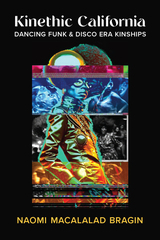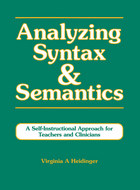
Analyzing Syntax and Semantics features the Personalized System of Instruction (PSI) approach. This method uses student performance objectives, practice, feedback, individualization of pace, and repeatable testing as instructional strategies.
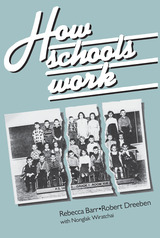
Viewing schools as part of a social organization with a hierarchy of levels—district, school, classroom, instructional group, and students—avoids the common pitfalls of lumping together any and all possible influences on student learning without regard to the actual processes of the classroom. Barr and Dreeben systematically explain how instructional groups originate, form, and change over time. Focusing on first grade reading instruction, their study shows that individual reading aptitude actually has little direct relation to group reading achievement and virtually none to the coverage of reading materials once the mean aptitude of groups is taken into consideration. Individual aptitude, they argue, is rather the basis on which teachers form reading groups that are given different instructional treatment. It is these differences in group treatment, they contend, that explain substantial differences in learning curricular material.
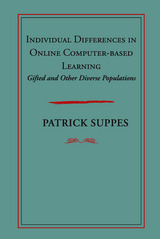
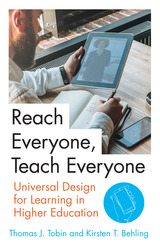
Advocates for the rights of people with disabilities have worked hard to make universal design in the built environment “just part of what we do.” We no longer see curb cuts, for instance, as accommodations for people with disabilities, but perceive their usefulness every time we ride our bikes or push our strollers through crosswalks.
This is also a perfect model for Universal Design for Learning (UDL), a framework grounded in the neuroscience of why, what, and how people learn. Tobin and Behling show that, although it is often associated with students with disabilities, UDL can be profitably broadened toward a larger ease-of-use and general diversity framework. Captioned instructional videos, for example, benefit learners with hearing impairments but also the student who worries about waking her young children at night or those studying on a noisy team bus.
Reach Everyone, Teach Everyone is aimed at faculty members, faculty-service staff, disability support providers, student-service staff, campus leaders, and graduate students who want to strengthen the engagement, interaction, and performance of all college students. It includes resources for readers who want to become UDL experts and advocates: real-world case studies, active-learning techniques, UDL coaching skills, micro- and macro-level UDL-adoption guidance, and use-them-now resources.
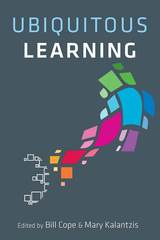
This collection seeks to define the emerging field of "ubiquitous learning," an educational paradigm made possible in part by the omnipresence of digital media, supporting new modes of knowledge creation, communication, and access. As new media empower practically anyone to produce and disseminate knowledge, learning can now occur at any time and any place. The essays in this volume present key concepts, contextual factors, and current practices in this new field.
Contributors are Simon J. Appleford, Patrick Berry, Jack Brighton, Bertram C. Bruce, Amber Buck, Nicholas C. Burbules, Orville Vernon Burton, Timothy Cash, Bill Cope, Alan Craig, Lisa Bouillion Diaz, Elizabeth M. Delacruz, Steve Downey, Guy Garnett, Steven E. Gump, Gail E. Hawisher, Caroline Haythornthwaite, Cory Holding, Wenhao David Huang, Eric Jakobsson, Tristan E. Johnson, Mary Kalantzis, Samuel Kamin, Karrie G. Karahalios, Joycelyn Landrum-Brown, Hannah Lee, Faye L. Lesht, Maria Lovett, Cheryl McFadden, Robert E. McGrath, James D. Myers, Christa Olson, James Onderdonk, Michael A. Peters, Evangeline S. Pianfetti, Paul Prior, Fazal Rizvi, Mei-Li Shih, Janine Solberg, Joseph Squier, Kona Taylor, Sharon Tettegah, Michael Twidale, Edee Norman Wiziecki, and Hanna Zhong.
READERS
Browse our collection.
PUBLISHERS
See BiblioVault's publisher services.
STUDENT SERVICES
Files for college accessibility offices.
UChicago Accessibility Resources
home | accessibility | search | about | contact us
BiblioVault ® 2001 - 2024
The University of Chicago Press


